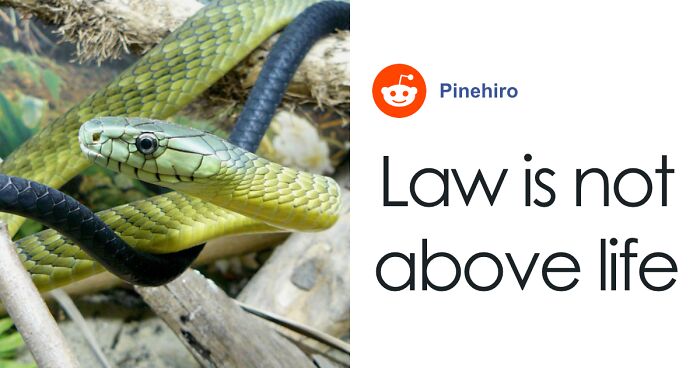A team of Kentucky paramedics is in danger of losing their licenses after administering snake anti-venom to save a man’s life.
Eddie Barnes and his unnamed colleague took the swift and much-needed action after reptile handler James Harrison was attacked by a snake endemic to central Africa—known for its venomous bites that are capable of dropping a fully grown human in as little as 30 minutes.
The medics may have saved a life, but they broke a law, and are now slated to face the state’s medical regulatory body to defend their credentials.
The paramedics tried unsuccessfully to contact the EMS director before administering the jab
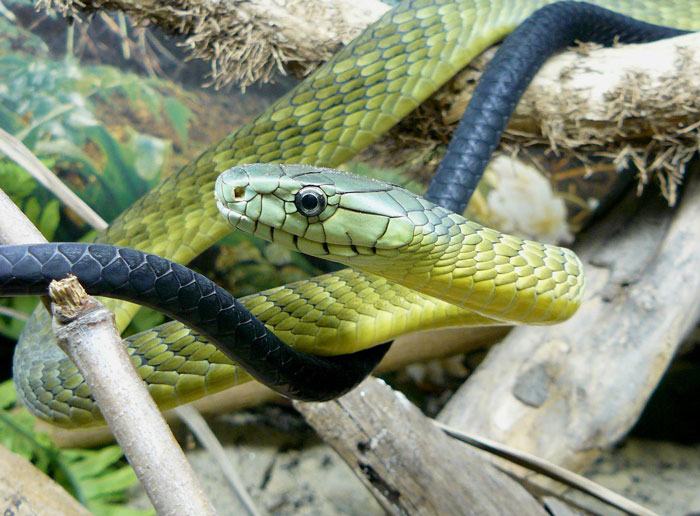
Image credits: Richard RoZ/Wikimedia
According to Barnes, also a judge-executive, Harrison apprised him and his colleague of his (Harrison’s) fate if they did not administer the antidote.
“The victim had told us that we needed to administer the antivenom as soon as possible, and if not, the first stage is paralysis, the second stage is respiratory arrest, the third stage is cardiac arrest, then he said, ‘I’m going to [pass away],’” Barnes recalled.
And so, while they waited for the medical evacuation helicopter, Barnes and his colleague gave Harrison the life-saving jab.
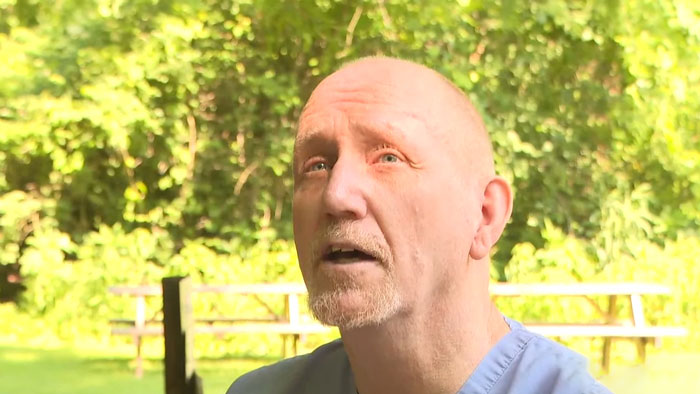
Image credits: WKYT
It has come to light that before injecting him, the paramedics tried to contact their EMS director, but said senior was unavailable.
Kentucky prohibits anyone but wilderness medics from administering anti-venom
Had the medics made contact with the EMS director, however, the Daily Mail speculates that they would have likely ordered them not to administer the anti-venom.
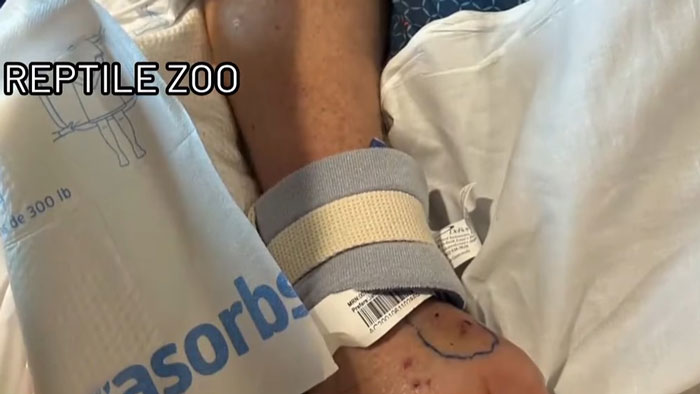
Image credits: WKYT
This decision would have been based on a state law amended two years prior, prohibiting anyone but wilderness medics from injecting patients with anti-venom.
“I’ll be honest with you, I think it’s ridiculous,” Barnes slammed the legislation.
Eddie Barnes says he would do it again to save a life
“If we had sat there and let him d**, then we would have been morally and ethically responsible, and we could have been criminally charged for his [demise],” Harrison told the outlet.
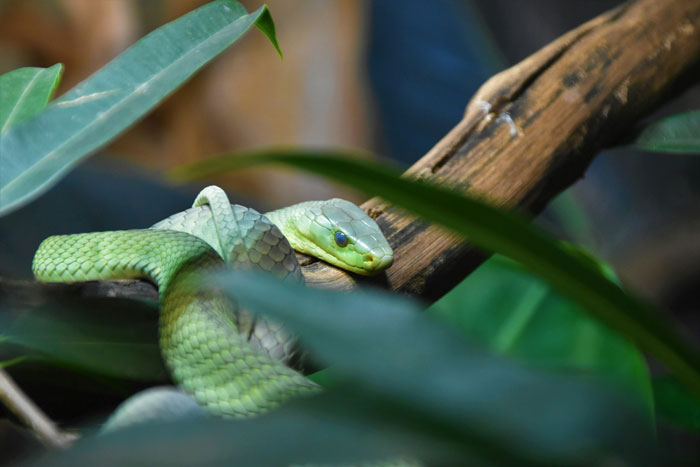
Image credits: Waldemar Brandt/Unsplash
Barnes is adamant he did the right thing and indicated that he would happily do it again.
“If it came down today, I would do the same thing. You cannot put a price on a person’s life,”
James Harrison and his wife Kristen have consulted other medics, who have reportedly backed Barnes’ decision
Harrison’s wife, Kristen Wiley also weighed in on the controversy that is now making international news, expressing gratitude.

Image credits: WKYT
“Every physician that we’ve talked to about it, and about the course of the bite, agrees that they were heroes and did what needed to be done to save him. That’s who I want working on me in an emergency,” WKYT, a television station based out of Lexington, Kentucky, quoted Wiley saying.
Bares and his colleague are slated to appear before the Kentucky Board of Emergency Medical Services on September 30.
Social media suggests that Barnes take Jameson’s Mamba to the hearing and let it bite someone there
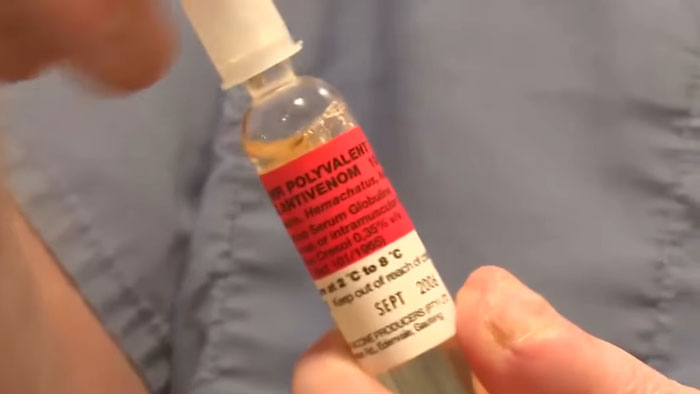
Image credits: WKYT
Social media has become aware of the dispute and recommended a revolutionary solution that is likely to vindicate Barnes and company quickly.
“Take a mamba to the meeting, let it bite someone who thinks they did the wrong thing and see how quickly they would let most anybody administer the life saving anti-venom,” wrote one person.
Another advised pointing out to the review board that there was no wilderness medic close by.
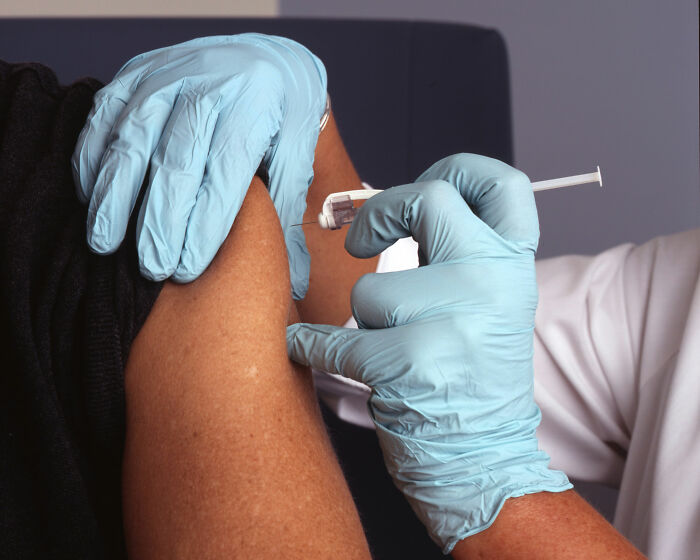
Image credits: NCI/Unsplash
Said individual also claimed there are contact details for wilderness medics in the telephone directory.
One reader took aim at the root of the problem when they asked: “How did a mamba from sub Saharan Africa get to Kentucky?”
The Jameson’s mamba is known as a shy snake, unlike its cousin the black mamba
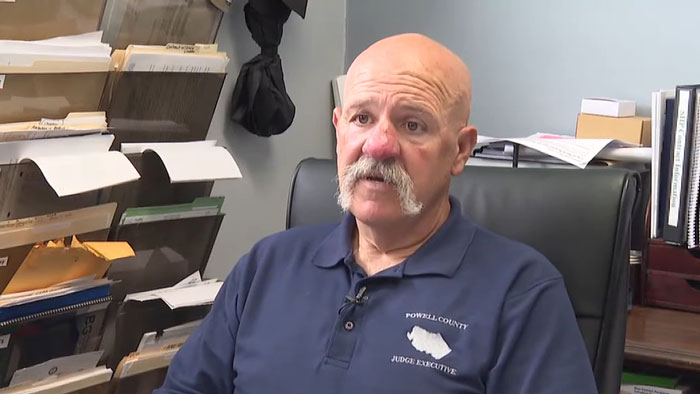
Image credits: WKYT
Data on the export of Jameson’s Mambas is hard to come by with the most recent statistics covering the period between 2013 and 2017.
At the time, 102 reptiles were listed for export to North America and Europe. The International Union for Conservation of Nature notes that the snake is not endangered.
Also, it is seldom a danger to humans as it is shy—unlike its cousin, the black mamba, which is just as venomous, has a top speed of 10 miles per hour, and is known to chase people.
The internet support for Barnes and his colleague is overwhelming













